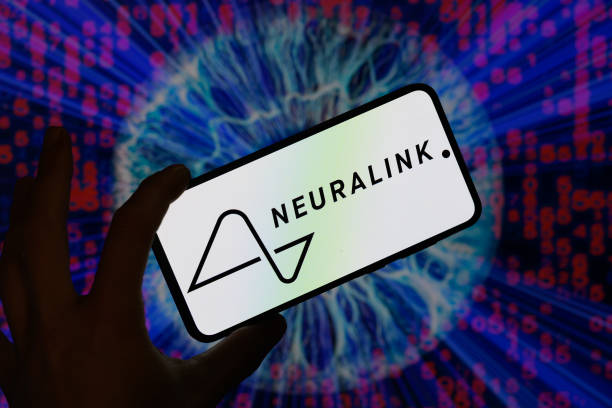“AI Shopping Assistants: How ChatGPT is Changing E-Commerce”
Online shopping is witnessing something influential. The integration of artificial intelligence paved the way for completely new experience in online shopping experience. Customers expect more than filters and search bars, they expect quick, personalized assistance that feels natural. With AI tools like ChatGPT shopping is becoming faster and more interactive.
Table of Contents
I. Introduction
These AI driven Chatbots like ChatGPT, not only answer basic questions, but also provide curated product suggestions by narrowing products down, comparing options, suggesting items, and assisting with purchases through natural conversation. Thus creating the huge impact in e-commerce sector not only for customers but for businesses as well.
But what kind of impact these AI driven Chatbots provide and why is this important for buyers and businesses? This blog explores how ChatGPT and other AI tools are changing online shopping experience, the advantages of using them, how they work, and what the future of e-commerce looks like.
II. What Are AI Shopping Assistants?

AI shopping assistants are intelligent, communicable tools that aid users to navigate online stores more naturally and efficiently. Unlike traditional e-commerce interfaces that rely heavily on menus, filters, and keyword searches, AI assistants understand user intent through natural language and respond like a salesman in the physical store.
Popular Example of AI shopping assistants:
- ChatGPT: It comprehend intricated queries and can guide users through product discovery across various categories.
- Google AI Mode in Search: It offers complete shopping overviews when user intends to purchase something.
- Shopify Integrations: Merchants can leverage AI tools that can answer product specific questions.
III. Impact of AI in e-commerce
Artificial intelligence (AI) is substantially augmenting the way online shopping works. What used to feel like a futuristic idea has now become a key part of how businesses operate. By 2032, the ecommerce AI market is expected to reach $45.72 billion. Moreover Organizations that adopt AI business strategies generate an average of 10-12% extra revenue.
Today, companies use AI to improve their strategies, stand out from competitors, and offer better experiences to their customers. smart ecommerce companies are using AI to create real benefits for their business and customers:
• They offer personalized shopping experiences that adjust in real-time based on each shopper’s likes and actions. It helps customer to find exactly what they want.
• They use large amounts of data to improve ads, suggest better products, and manage stock more efficiently.
• AI helps them reach more people through smarter search tools and voice shopping features.
• Predictive tools help send the right messages to customers at the right time.
• Chatbots and smart systems make customer support faster and the shopping experience smoother.
IV: Behind the Scenes: How AI Understands Shopping Intent

1. Role of Language Models (like ChatGPT or Gemini)
Think of language models like ChatGPT or Gemini as smart shopping assistants that understand what you’re saying—just like a real person would. When you type “I need a dress for a beach wedding,” the AI doesn’t just look for any dress; it understands the occasion and setting. These models are trained on huge amounts of data so they can figure out context, tone, and needs, allowing them to respond naturally and helpfuly.
2. How It Processes Queries and Retrieves Results
When you search something online, AI breaks your query down into meaningful parts. Instead of just matching keywords, it figures out what you actually want. For example, if you type “best phone for photography,” AI knows you’re likely interested in camera quality, not just any phone. It then scans through product data, reviews, and specs to deliver results that match your intent—not just your words—making search faster, more accurate, and more satisfying.
3. Use of Sentiment, Preference Learning, and Recommendation Algorithms
AI also pays attention to your behavior—like what you click, how long you stay on a product, or what reviews you leave. It uses this data to learn your preferences over time. If you usually go for budget-friendly items with good reviews, it starts recommending more of that. It even picks up on sentiment—whether you’re happy, frustrated, or excited—so it can better respond and adjust recommendations. All of this makes the shopping experience smarter and more personal.
V. Benefits for Shoppers
• Personalized Suggestions: Every time you shop or browse online, you leave behind data — and AI turns that data into smart suggestions. By looking at what you like, buy, and how others like you shop, AI recommends products and offers that match your interests, making it more likely you’ll find something you want and actually make a purchase. In simple words, the product suggestion is tailored according to the customer preferences, ultimately boosting conversions by showing the right product at the right time.
• Personalized Search: AI in e-commerce helps deliver personalized search results by understanding the intent behind a shopper’s query. It uses patterns in both online and offline data, and machine learning makes the results more relevant to individual needs.
For example, if a shopper searches for “running shoes”, and AI knows they recently moved to a cold area, it might show waterproof or thermal running shoes instead of regular ones. This smart match helps the shopper find what they truly need—reducing frustration and increasing chances of a purchase.
• Conversational e-commerce: Imagine having a virtual salesperson right on your screen, ready to help anytime you shop online—that’s what AI in conversational e-commerce does. Whether you’re looking for the perfect shoes, tracking an order, or need help with a return, AI-powered chatbots guide you in real time. It helps you with understanding your needs and answering your questions instantly. It’s like chatting with a helpful store assistant, making your shopping experience faster, easier, and more personalized.
VI. Benefits for Businesses
While artificial intelligence has a lot to contribute for the customer experience, it can also dramatically impact the business behind the curtains. While ecommerce adoption continues to grow, retailers can utilize AI to handle the complexities they face.
• Logistic Support: Business owners can leverage AI for optimising warehouse processes and revolutionising supply chain management. AI uses data from many sources—like sales records, customer behavior, demographics, and online shopping activity (such as responses to promo emails). Machine learning and data analysis tools allows retailers to quickly observe patterns and make smart predictions using this information in real time.
• Forecasting: AI helps with seasonality predictions by analyzing past data from events like Black Friday to forecast future demand. It identifies patterns in shopping behavior, weather, and trends to predict what products will be in high demand in future aiding retailers to stock the right items at the right time and avoid overstocking or running out.
• Targeted Promotion: Based on the data of shoppers and other businesses, AI extract usefull information about the shoppers behaviour and figure out the purchasing power. Business leverage this data to show targeted ads to the potential customers. This means businesses can reach the right people, at the right time—saving money and increasing conversion rates.
• Effective Marketing: As it tracks customer data to understand preferences and behavior, it is helping businesses improve marketing and advertising. It creates personalized ads, recommends the best times to post, and even writes content that connects better with audiences. AI also tracks which campaigns work best and adjusts them in real time.
• Upselling and Cross Selling: AI helps businesses boost sales by using customer context for smart upselling and cross-selling. For example, if you buy a laptop, AI might suggest a matching mouse or upgrade to a better model based on your past purchases and preferences. By understanding what each customer needs, businesses can offer the right add-ons or upgrades at the right time, making shopping easier and increasing overall sales.
VII. Future of AI in E-Commerce
• Agentic AI: A major trend shaping the future of AI in the e-commerce is the rise of Agentic AI—autonomous digital assistants powered by large language models, machine learning, and natural language processing. Unlike traditional tools, these AI agents don’t just follow instructions—they reason, learn, and adapt to achieve goals with minimal human input.
These intelligent agents can search for products, compare prices, negotiate deals, and even complete purchases – based on predefined rules and learned user preferences. Agentic AI is already making waves by enabling hyper-personalized shopping experiences. Agentic Commerce is poised to redefine the role of the consumer, with AI acting on behalf of users to simplify decision-making and streamline the shopping process.
• Upcoming Features: Checkout Inside ChatGPT and Visual Shopping
Imagine chatting with ChatGPT to find a product and then buying it without ever leaving the chat—that’s what “checkout inside ChatGPT” aims to do. It’s like having a personal shopper and cashier in one conversation. Add to that visual shopping, where you can search with images instead of words. Want a dress like the one you saw on Instagram? Just upload the photo, and AI will find something similar for you.
IX. Conclusion
AI shopping assistants are changing the way we shop online. Instead of spending time clicking through endless pages, you can now just ask a simple question and get smart, personalized answers—just like talking to a real shopping expert.
As this technology continues to grow, shopping will feel less like browsing and more like having a helpful friend by your side.
Next time you’re shopping, open ChatGPT and ask, “Can you help me find the best budget smartphone under ₹15,000?”You might be surprised by how helpful it is.
FAQs
1. What is an AI shopping assistant?
An AI shopping assistant is a virtual helper that uses artificial intelligence to understand your shopping needs and guide you through finding the right products online.
2. How do AI shopping assistants work?
They use natural language processing to understand your questions and provide helpful responses—such as product suggestions, comparisons, or even guiding you through checkout.
3. What are the benefits of using an AI assistant while shopping online?
AI assistants save time, provide personalized recommendations, answer product-related queries instantly, and often help you discover better deals.
4. Can AI shopping assistants replace traditional customer support?
They can handle many routine tasks like answering questions, finding products, and tracking orders. For complex issues, human support is still needed.
5. Do AI shopping assistants work on all websites?
No, only websites that have integrated AI assistants or plugins offer this feature. Some platforms also provide AI-powered tools through their apps.
6. Are these assistants safe to use?
Generally, yes—especially when used on reputable platforms. Always be cautious with personal or payment information and ensure the site uses proper security.
7. Can they recommend personalized products?
Yes. Many AI tools learn from your preferences, past purchases, or browsing behavior to suggest products that suit your style and needs.






